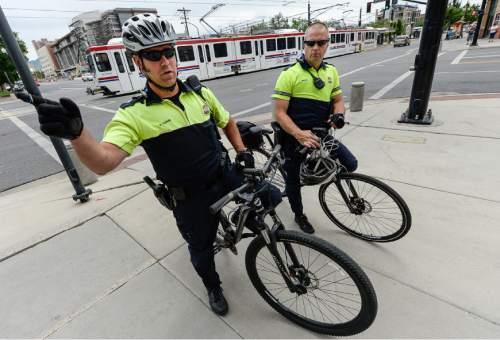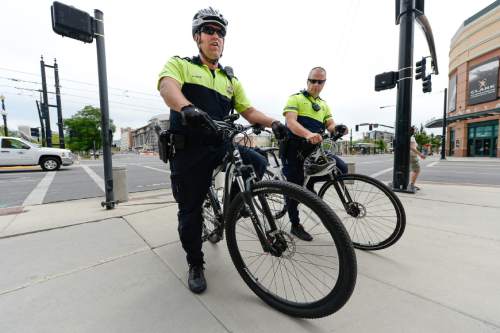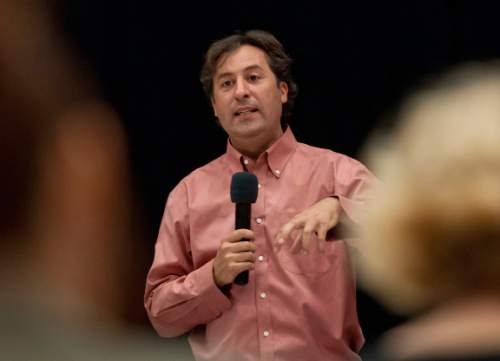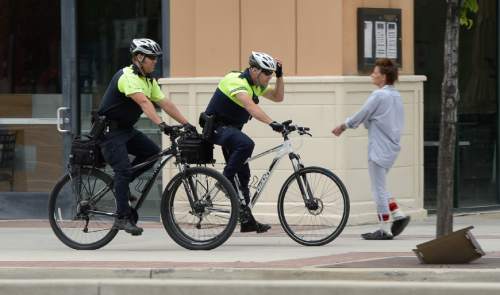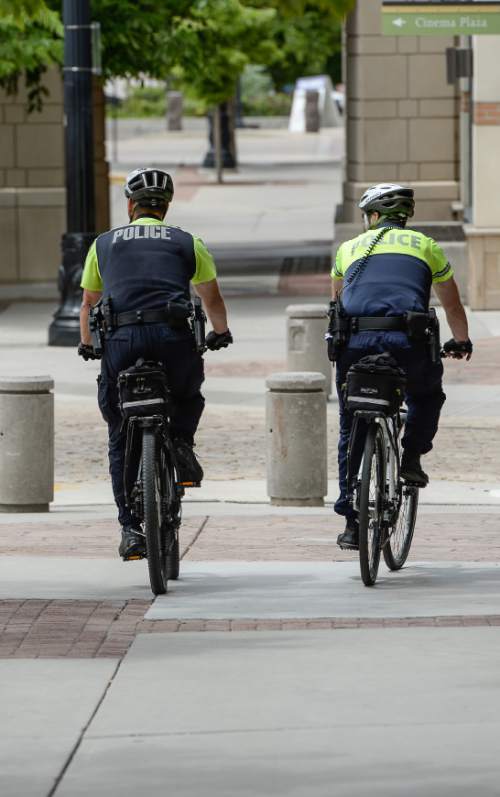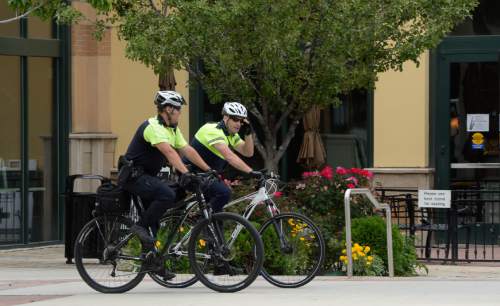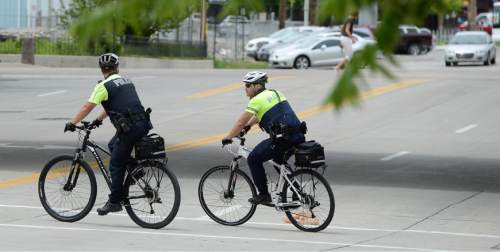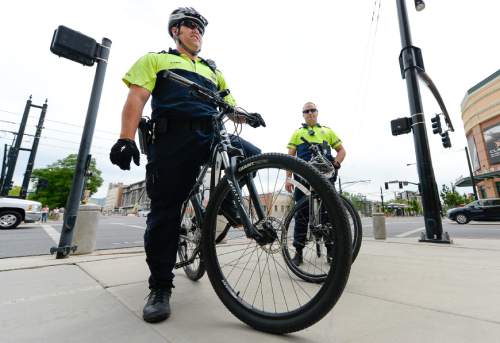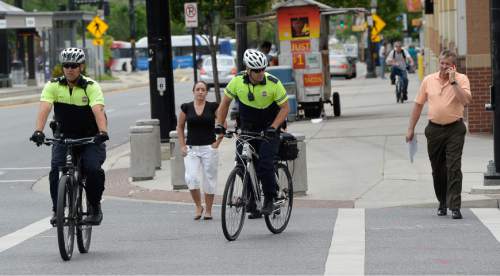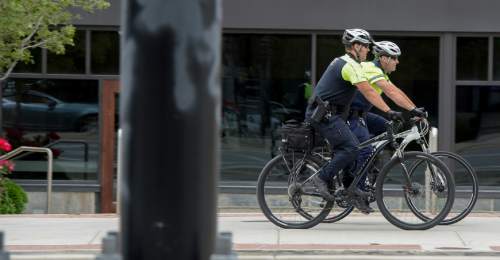This is an archived article that was published on sltrib.com in 2015, and information in the article may be outdated. It is provided only for personal research purposes and may not be reprinted.
Prescription for dealing with crime in Salt Lake City: social workers and bicycle cops.
In something of a surprise Tuesday night, the City Council, in a 4-3 vote, decided to hire eight social workers to aid police interacting with homeless people and eight bicycle-patrol officers. It also would bring on 15 additional officers if the city lands a federal grant.
Presently, police in the Metro Division spend a significant amount of time referring the homeless to service providers. The move to bring in social workers would free up officers for other duties, according to the proposal from Councilman Stan Penfold.
"We have officers who are currently doing social services," he said. "The police could guide the social workers. ... We need to give the police department the resources to get people into treatment."
The new emphasis on bicycle patrols, by contrast, was something east-side council members had been pressing for since Mayor Ralph Becker unveiled his proposed $254 million budget May 4. The $60.4 million for the police department outlined by the mayor emphasizes new cars and computers.
It also includes the addition of civilian clerical workers who would effectively free up two officers for street patrol.
The new social workers and cops won't start until fall. Price tag: $1.1 million on top of the mayor's police-budget proposal for fiscal 2016.
The council didn't reach its conclusion easily, however.
Councilman Charlie Luke had argued for 25 new police officers, citing an increase in crime in his east-side district as well as complaints that police response times were unacceptably long.
"Public safety is the critical responsibility of municipal government," he said. "It's critical we step forward on [police] patrol."
Luke's proposal was in line with the Salt Lake Police Association. The union's leader, Michael Millard, cited statistics showing an uptick in crime that he said had officers rushing from one call to the next.
But, according to Deputy Chief Tim Doubt, long-term statistics show the city's crime rate in decline.
During the council's annual budget negotiations late Tuesday, Luke reduced his request to 20 new officers — 15 of whom would be funded by a three-year federal grant. They would be above and beyond the eight new bike cops.
The council endorsed the plan for 15 additional officers by a 6-1 vote, with the caveat that if Salt Lake City did not get the grant, none would be hired.
The city won't know until September if it will receive the federal funding that would cover 75 percent of the officers' salaries and benefits — but none of the equipment outlay, including vehicles.
The lone dissenting vote on the grant proposal came from west-side Councilman Kyle LaMalfa.
"Preventing crime is about education and access to opportunity — not more policemen," he said. "The chief [Chris Burbank] has told us he doesn't want more officers."
But east-side Councilwoman Erin Mendenhall, who championed the addition of bicycle patrols, said her constituents feel vulnerable to crime as police have focused on the Rio Grande District, which encompasses The Road Home shelter and other service providers near Pioneer Park.
"I believe there is a threshold at which our police [presence] can affect crime," she said. "Currently, I don't think we're at that threshold."
The council must adopt a budget by June 22. It could do so as early as June 16.


